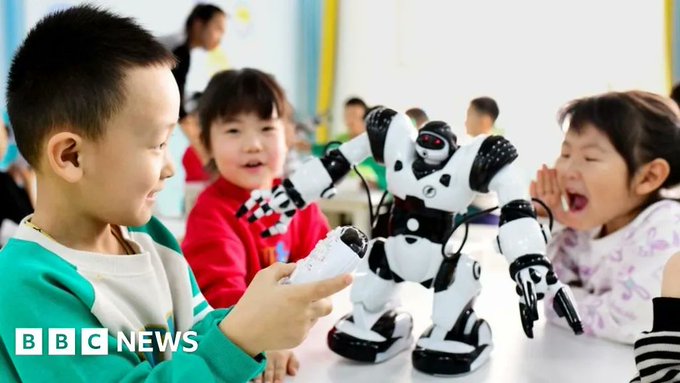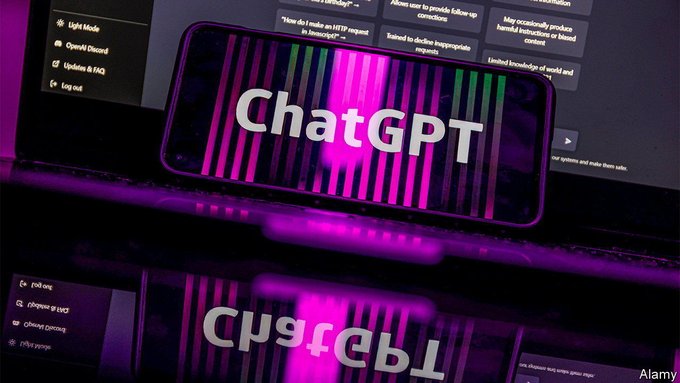Artificial intelligence has emerged as enough of a concern that it made it onto what was already a packed agenda at the G7 summit at the weekend.
Concerns about AI’s harmful impact coincide with the US’ attempts to restrict China’s access to crucial technology.
For now, the US seems to be ahead in the AI race. And there is already the possibility that current restrictions on semiconductor exports to China could hamper Beijing’s technological progress.
But China could catch up, according to analysts, as AI solutions take years to be perfected. Chinese internet companies « are arguably more advanced than US internet companies, depending on how you’re measuring advancement, » Kendra Schaefer, head of tech policy research at Trivium China tells the BBC.
However, she says China’s « ability to manufacture high-end equipment and components is an estimated 10 to 15 years behind global leaders. »
The Silicon Valley factor
The US’ biggest advantage is Silicon Valley, arguably the world’s supreme entrepreneurial hotspot. It is the birthplace of technology giants such as Google, Apple and Intel that have helped shape modern life.
Innovators in the country have been helped by its unique research culture, says Pascale Fung, director of the Center for Artificial Intelligence Research at the Hong Kong University of Science and Technology.
Researchers often spend years working to improve a technology without a product in mind, Ms Fung says.
OpenAI, for example, operated as a non-profit company for years as it researched the Transformers machine learning model, which eventually powered ChatGPT.
« This environment never existed in most Chinese companies. They would build deep learning systems or large language models only after they saw the popularity, » she adds. « This is a fundamental challenge to Chinese AI. »
US investors have also been supportive of the country’s research push. In 2019, Microsoft said it would put $1bn (£810,000) in to OpenAI.
« AI is one of the most transformative technologies of our time and has the potential to help solve many of our world’s most pressing challenges, » Microsoft chief executive Satya Nadella said.
Mots-clés : cybersécurité, sécurité informatique, protection des données, menaces cybernétiques, veille cyber, analyse de vulnérabilités, sécurité des réseaux, cyberattaques, conformité RGPD, NIS2, DORA, PCIDSS, DEVSECOPS, eSANTE, intelligence artificielle, IA en cybersécurité, apprentissage automatique, deep learning, algorithmes de sécurité, détection des anomalies, systèmes intelligents, automatisation de la sécurité, IA pour la prévention des cyberattaques.






